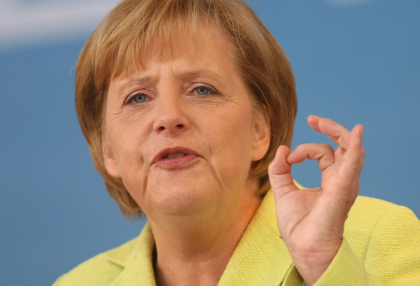The Euro to Pound Sterling (EUR/GBP) exchange rate fell to a fresh 7-year low on Thursday as the single currency was weakened by a bout of profit taking ahead of Friday’s German vote on the Greek bailout reforms.
The Euro to Pound Sterling Exchange Rate hit a session low of 0.725
Concerns over whether the German parliament would vote to approve a four-month bailout extension, caused investors to ditch their Euro’s in favour of safer assets such as the Pound Sterling and US Dollar.
As the session progressed, the single currency continued to soften, as traders were not convinced by reports suggesting that a large majority of lawmakers in Chancellor Angela Merkel’s conservative bloc would back the measures.
In a test vote among the 311 conservative lawmakers, 22 opposed the bailout extension and five abstained. A minority of conservative lawmakers has consistently voted against bailouts over the five years of Europe’s debt crisis.
Doubts are also high that the Syriza led Greek government will stick to the proposed measures as it comes under increasing pressure from voters who accuse it of abandoning pre election pledges to end austerity and refuse another bailout.
‘We will vote yes, but we expect Greece to keep to what it has pledged. However, we aren’t taking our decisions on the basis of these loutish comments that are coming out of Greece we are taking the decisions that are necessary in the interest of Germany and Europe,’ said Volker Kauder, caucus leader of Merkel’s bloc.
Data released earlier in the session, which showed that unemployment in Germany fell, by a more than forecast pace in February. The number of Germans out of work fell by a seasonally adjusted 20,000 to 2.81 million. The adjusted jobless rate remained at 6.5%, the lowest level for more than twenty years.
Improved confidence data out of the Eurozone failed to support the single currency.
UK GDP Data Offered Support
The Pound Sterling meanwhile was continuing to find support from comments made by Bank of England policy makers who suggested that interest rates could rise sooner than forecast.
Data released by the Office for National Statistics (ONS) confirmed that the UK economy expanded by a pace of 0.5% in the final quarter of 2014.
A separate report showed that business investment in the nation fell at its sharpest rate in nearly six years in the final quarter of 2014. The drop was blamed on falling oil prices.
The Euro’s movements on Friday will depend on the German vote and German inflation data.



